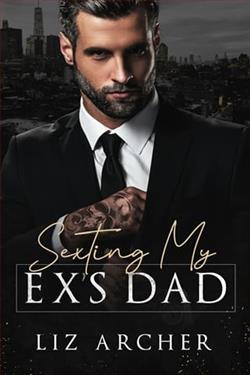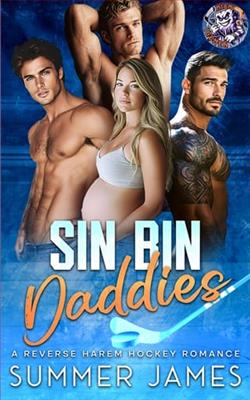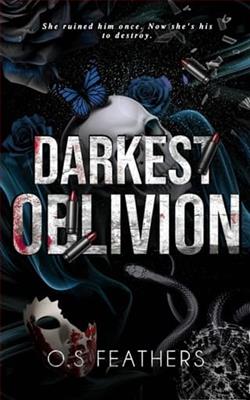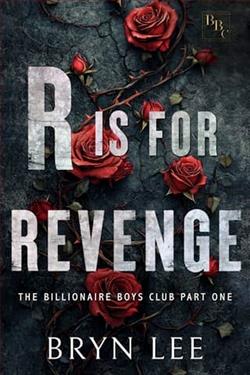Page 175 of Darling Obsession
“When I’d try to read, the words would move around on the page, and I’d have to focus really hard. It was exhausting. So I’d read comic books, because the small bits of text were so much easier to ingest. But when I’d try to write book reports on them, I’d get in trouble. I was told I was lazy. I just didn’t know how to explain what was happening when I tried to spell or read, because I didn’t know that other people learned differently than I did.”
“That sounds really frustrating,” Quinn says sympathetically.
“Yeah. I kind of hated school because of it. I had this one teacher who was super strict about spelling. I spelled the word ‘beautiful’ wrong on a quiz, and he made me stay after class and write it on the chalkboard, over and over. I can still spell it, but not because I actuallylearnedhow to spell. Because I can see it on that chalkboard in my head.”
“Huh,” she says, like she’s trying to picture it. “I don’t know if I understand the difference. If you see it, you see it, don’t you?”
“But I only see it because of that memory. If you asked me to write down the word beautiful, and I didn’t have that memory, I wouldn’t be able to sound it out and figure it out. I can’t ‘sound out’ words.”
I can see she’s trying to understand, but it’s hard for her to grasp.
“It’s really hard to explain. But I still write words like that in my head, over and over, and I don’t even know why. I think it’s like this overlap between the dyslexia and my OCD, this compulsive way of seeking control, putting the letters into place, over and over again. I write words with my fingertip constantly, but it’ll be one word over and over. A lot of the time, I don’t even know I’m doing it.”
“I’ve seen you do that, I think. Your fingertip moves. Sometimes when we’re lying together in bed, your hand is on me, and I think you’re asleep, but then your fingertip starts twitching.”
“Yeah. I can imagine it’s pretty annoying.”
I wish I could say I’d stop doing it, but I don’t know if that will ever be true. I’m not even sure I want to stop doing it, it’s such a part of me. And it is soothing, in a weird way, even though it doesn’t exactly soothe me. It’s something to focus my mind on when I’m otherwise stressing out. A false sense of control.
“It’s not annoying,” she says. “But you said no one knows? Your brothers don’t know? Your staff? People who work with you?”
“My brothers, no. They’ve always just poked at me about being lazy because my writing is sloppy. Some of my staff might suspect. But I’ve always found ways to work around it. And now I have so many people working under me who can take care of anything I need them to, it’s easy enough to cover the fact that I can’t spell worth shit. And spell check only goes so far. If I wrote an actual email to a business associate without one of my assistants or my secretary cleaning it up, people would think I was stupid.”
“They wouldn’t think that,” she says. “They’d just think you’re in a hurry, or you used dictation and it screwed up?—”
“Seriously, Quinn. People judge. When you suck at math, no one blinks an eye. But if you can’t spell common words, believe me, people think it’s a direct sign of lack of intelligence.”
She considers that. “And you never talked to anyone about this? Had it properly diagnosed?”
“No. I don’t feel like I need to. The writing’s on the wall. And it’s terrible.”
“Wow. Did you just make a self-deprecating joke?”
“I believe I did.”
She gazes at me, looking charmed. “Harlan Vance, who are you?”
“If you keep looking at me like that,” I flirt, “I’ll be anyone you want me to be.”
“Don’t flirt,” she says, but I know she likes it. “This is a serious conversation.”
“Well, there’s not much else to say about the dyslexia thing. I even told Savannah to stop sending me articles about it. I’m sort of over it.”
“But why? It’s not something to be ashamed of.”
I swallow. There’s that sharp shard feeling in my throat, the one that lodges there when I’m truly uncomfortable, and I know she’s hit a wound.
Iamashamed of it.
“Because it was the source of all my struggles and frustrations in school, and the frustrations with my dad. We’d argue about it all the time.”
Quinn’s eyebrows pinch. “He was hard on you because you struggled in school?”
“Always.” I take a breath, then dive right in. “Our last conversation, before he died, was an argument. He was angry with me for skipping classes, and I accused him of being harder on me than all my siblings. I truly thought I was his least favorite child, and I told him so. And he really seemed upset. The last thing he said to me was, ‘I have a harder time being your father than anyone else’s, because you’re so much like me.’ And then he told me that he loved me. That wasn’t something he normally said, at least not to me.” I hesitate before telling Quinn the full truth. “I didn’t say it back.”
“Oh, shit,” she says softly.
Then she sets her cider aside, unwraps herself from her blanket, and comes over. I open my blanket to let her in. She snuggles against me, wrapping her arm around my waist, and putting her head on my chest.















